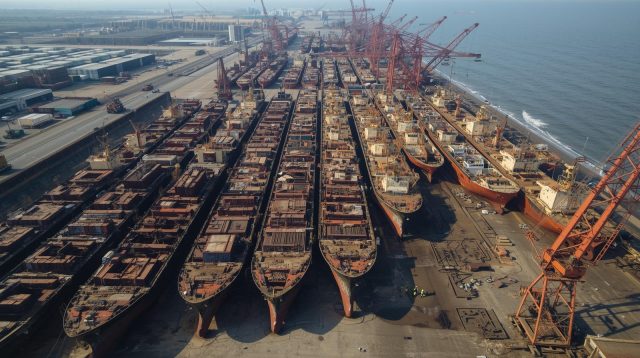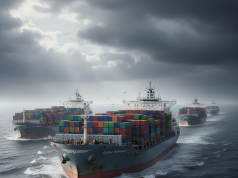Kamrul Islam: Alang, located in Bhavnagar district on the western coast of Gujarat, is known as the world’s largest shipbreaking yard. Stretching across nearly 10 kilometers of coastline, hundreds of yards line up to dismantle massive ocean-going vessels. Since its official launch in 1983, Alang has emerged as a dominant force in the global ship recycling market.
The enforcement of the Hong Kong International Convention in September 2025 has brought major changes to Alang as well. Preparing to meet international compliance requirements, Alang is now stepping into a new phase of transformation.
Economic Importance of Alang
The shipbreaking industry at Alang forms one of the pillars of India’s steel sector. Every year, it produces around 4–5 million tons of scrap steel, which significantly contributes to infrastructure, construction, and heavy industries across the country. Beyond steel, used machinery, generators, electrical equipment, furniture, and even household goods are recycled here and supplied to local markets.
Nearly 50,000 workers are directly employed in Alang, while several hundred thousand more depend on the industry indirectly for their livelihoods.
Journey Towards Modernization
Compared to Bangladesh and Pakistan, Alang began preparing for the Hong Kong Convention much earlier. With the combined support of India’s central government and Gujarat state authorities, the yards have undergone rapid modernization.
About 90% of the yards have already received Statements of Compliance (SoC), which are officially recognized under the convention.
Concrete floors, waste management plants, oil-spill control systems, and specialized hazardous waste storage facilities have been established.
Medical centers, training schools, and emergency rescue units for workers have also been introduced.
As a result, Alang has now become one of the safest and most preferred recycling destinations for international shipping companies.
Worker Safety and Health
The majority of workers at Alang are migrants from Uttar Pradesh, Bihar, Odisha, and West Bengal. In the past, accidents, fires, and severe health risks were frequent. But in recent years, substantial improvements have been made in worker safety:
- Helmets, safety belts, masks, and protective shoes are now mandatory.
- Each yard is equipped with primary healthcare units.
- Special medical check-ups are conducted for workers exposed to hazardous waste.
Labor unions admit that further progress is necessary, but they agree conditions are much safer than before.
Environmental Safeguards
At one time, Alang’s coastline witnessed devastating impacts on marine biodiversity. However, under the influence of the convention, strict measures have been implemented in waste disposal and oil-chemical control. Almost all yards now have Hazardous Waste Disposal Facilities, while the Gujarat Pollution Control Board conducts regular monitoring.
International Outlook
European Union and Japanese shipping companies have already resumed sending vessels to Alang, citing improved compliance with global standards. Shipowners are reassured by the guarantees of safe and sustainable recycling, which has significantly boosted Alang’s credibility worldwide.
Experts believe that with the enforcement of the Hong Kong Convention, Alang will further consolidate its dominance in global ship recycling.
Challenges Ahead
Yet, not everything is positive.
- Workers’ actual wages remain low.
- Local villagers claim environmental pollution has not been fully contained.
- To stay competitive globally, Alang must invest in more advanced technologies and greater transparency.
The Road Ahead
Alang now stands at the crossroads of transformation. Once criticized for pollution and frequent worker deaths, it is steadily evolving into one of the world’s most sustainable shipbreaking hubs. Analysts suggest that Alang’s experience could serve as a valuable lesson for other South Asian nations—particularly Bangladesh and Pakistan—seeking to modernize their own ship recycling sectors.











